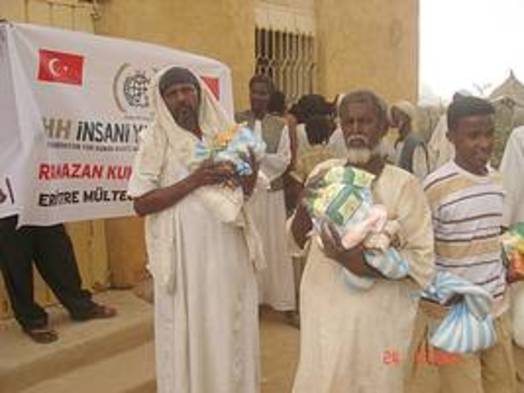
The refugees, who have lived in eastern Sudan since 1967, received aid from the IHH. The foundation delivered Ramadan aid to the refugees living in the camps located in Kassala, 650 km east of Sudanese capital Khartoum.
The IHH delivered food packages containing millet, sugar, flour, cooking oil and legumes to 5,500 needy families, who are struggling with economic problems. Gratified over the delivery of the food packages, Eritrean people expressed their thanks to the charitable Turkish citizens for extending their help in every Ramadan.
The foundation delivered clothes and stationery materials to 300 Eritrean refugee orphans in Kassala region. The orphans were pleased to have received the clothes ahead of Edi al-Fitr.
About one million Eritrean refugees have lived in barren regions of Kassala, Gedaref, Gezira and Sennar for four decades. During the war between Ethiopia and Eritrea hundreds of Eritreans had to take shelter in neighboring Sudan. The war has been over, but Eritrea refugees couldn’t return to their lands due to a number of problems.
Eritrean citizens in hard conditions
Located on the coast of Red Sea in Northeast Africa, Eritrea gained its independence from Ethiopia in 1993 after long years of fighting between the two sides. However, the independence of Eritrea didn’t end the problems of Eritreans. About four million Eritreans are suffering from hunger and poverty. One third of Eritreans, who live on farming and herding, are semi-nomadic.
Christians govern Eritrea though majority of Eritreans are Muslim. Eritrean Muslim refugees in Sudan cannot return to their country due to pressure of the Christian administration.